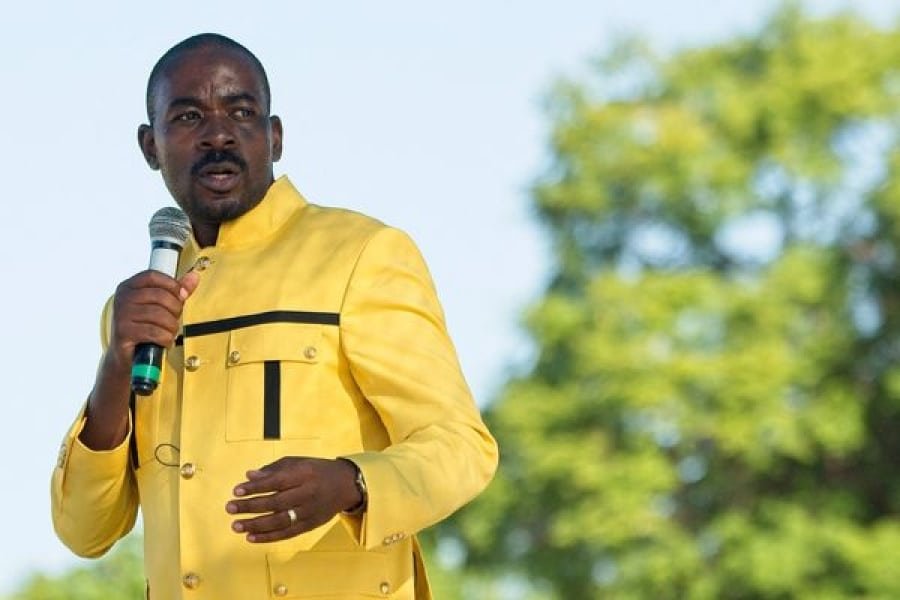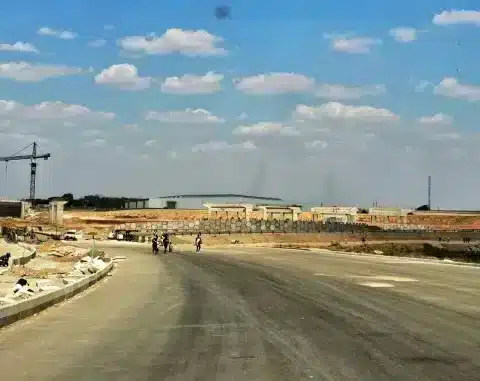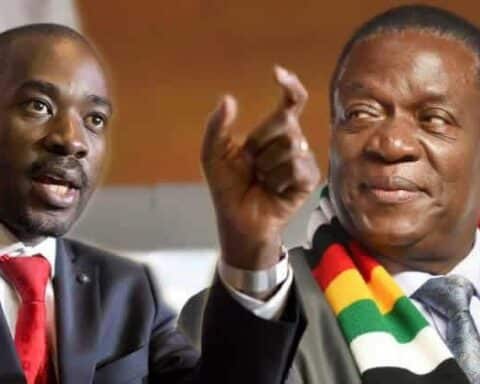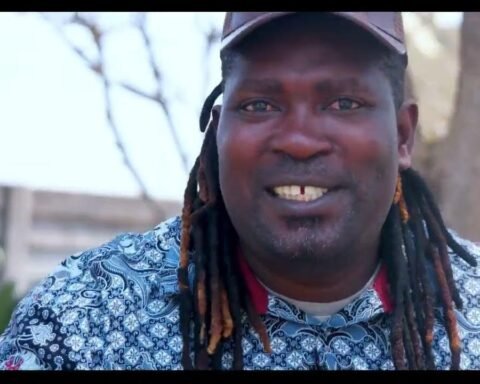Zimbabwean opposition leader, Nelson Chamisa, is facing criticism from his followers over his use of religious rhetoric to address the country’s crisis. Chamisa, the leader of the Citizens Coalition for Change (CCC), has been relying on the slogan ‘God Is In It’ to motivate his supporters. However, some of his disciples are now calling for more concrete action to be taken to address the issues facing the country.
The criticism emerged following Chamisa’s response to the Gold Mafia documentary by Al Jazeera, where he tweeted a bible verse and his common mantra. “The wise acknowledge and seek their God. The fool says in his heart, ‘There is no God.’ They are corrupt; their ways are vile. God looks down from heaven upon the sons of men to see if any understand, if any seek God. Psalm 53: 1-2 Blessed Sabbath,” said Chamisa in a tweet that had #GodIsInIt.
Chamisa’s use of religious language in politics is not new. He has used religious symbolism and references in his political speeches and social media posts to great effect, particularly in the 2018 elections when he was a presidential candidate. However, the recent backlash suggests that his followers are now growing impatient with his reliance on religious rhetoric.
In response to Chamisa’s tweet, some of his followers criticized him for focusing too much on bible verses and not enough on taking tangible action. “This is the time you need to be going guns blazing on the Gold Mafia. All Chamisa does is preach verses nxaaa. You don’t get the work you need to do to win for sure. Masses are like school kids it is emphasis and repetition of message that will do wonders,” said a Twitter user, Walle.
“We need action now; we have had enough of these verses. By now I would have thought the communication department would have held a press conference expressing the masses’ anger. Please lead!!” said Kay Jaricha.
“Bible verses pakadai deflate our morale big time. Inga Jesu akati aona corruption muimba yaMwari akatora chamboko akaruka makororo big time,” said a user going by Mbombela.
The criticism raises important questions about the role of religion in politics. While religious beliefs can provide a powerful source of motivation and inspiration for individuals and groups, they can also be divisive and exclusionary. In the case of Zimbabwe, where there is a history of religious tensions between different denominations, the use of religious language in politics can be particularly sensitive.
Moreover, the use of religious language and symbolism in politics can be seen as a way to deflect attention from more pressing issues. In Zimbabwe, where corruption, economic instability, and human rights abuses are rife, some of Chamisa’s followers are now calling for more concrete action to be taken to address these issues.
Chamisa’s response to the Gold Mafia documentary highlights the need for leaders to strike a balance between religious language and concrete action. While religious language can be a powerful tool for motivating and inspiring followers, it cannot be a substitute for tangible action. In a country like Zimbabwe, where the political situation is precarious, leaders need to demonstrate their commitment to addressing the real issues that affect people’s lives.








